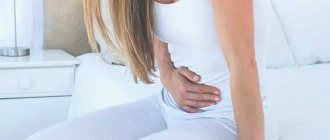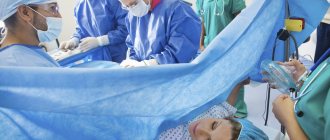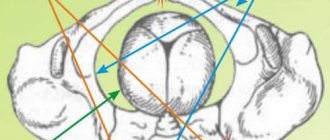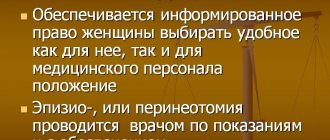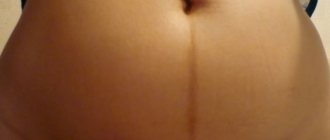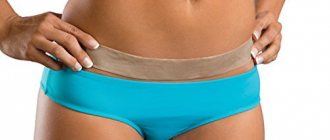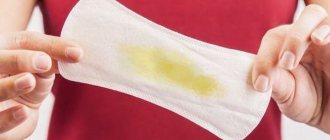Why does flatulence occur?
In most cases, increased gas formation is associated with the diet of a young mother. Therefore, to combat the problem, it is necessary to adjust the menu and exclude from it products that cause gas formation. We are talking about beans, black bread, white cabbage, milk. In addition to them, combinations of incompatible products can also cause flatulence in a woman during childbirth. For example, these are those that contain protein and starch. This means that meat should not be consumed together with pasta and potatoes. It is better to serve vegetables and salads with meat dishes. The best option for a nursing mother is broccoli.
Nutrition should be gentle. Broths, soups, still water, cereals, juices are those products that are recommended to be included in the menu in the first days after childbirth. Gradually, vegetables, boiled meat, eggs, biscuits, crackers, bananas, heat-treated carrots, beets, broccoli, and apples are added to them.
Women should not forget that for the normal functioning of the digestive organs it is necessary to consume a sufficient amount of water. Sometimes this important and simple recommendation is not followed by mothers.
You should not consume exotic foods after childbirth. It will be easier for the intestines to cope with regular, simple food. In this case, the regimen of its administration should be fractional, 5-6 times a day.
Less commonly, the cause of flatulence in women after the birth of a baby is displacement of internal organs. The growing uterus in the last trimester of gestation displaces the pelvic organs and intestines. They need a certain time to return to their original, natural location. During this period, the entire digestive system may malfunction. In this case, to quickly restore the functions of internal organs, it is necessary to perform special gymnastics.
Note that this abdominal surgery negatively affects the functioning of the intestines. And the main reason for this is the introduction of special medications during the procedure that block the functioning of the digestive system. During the recovery process, gas formation and disruptions in the gastrointestinal tract often occur. That is why early physical activity is recommended to prevent such problems in the postoperative period. A woman must get up and walk slowly so that the normal functioning of her internal organs is restored. Only in this case, recovery will take place in the shortest possible time, and the problem will not bother the woman for a long time.
Uncomfortable urination
After surgical delivery, problems with urination often occur. The first bowel movement after surgery causes particular difficulties. But you need to “go to the boat” on the first day: otherwise the bladder will be full, which will provoke severe pain. The woman in labor will relieve herself more often - the muscles of the urinary tract will recover faster. When the patient cannot empty herself, she is given a catheter through which the fluid is removed.
After the first urination, the process usually improves, but most women complain of pain/burning that accompanies emptying the bladder. This is considered quite natural during the first weeks after surgery. However, if discomfort does not disappear after seven days, you should consult your doctor. Only a specialist can tell if everything is okay. If a little time has passed after the operation, and there are no obvious causes of pain, then the doctor may choose a wait-and-see approach. Discomfort should go away no later than three weeks. If the pain remains, it means something is wrong with the body.
Pain during bowel movements may disappear and then return again. “Return” usually indicates an infection or disease of the urinary system. You should not delay your visit to the doctor if:
- every trip to the toilet is accompanied by discomfort;
- the temperature stays above 37 degrees for three days or more;
- Uncharacteristic discharge is observed.
Self-medication using medications in the postoperative period is unacceptable. Especially if a woman is breastfeeding her baby. Traditional medicine methods are used strictly after approval by a doctor, otherwise you can cause irreparable harm to your health. The selection of suitable therapeutic methods is preceded by a thorough diagnosis.
About the fight against flatulence after childbirth
A visit to the doctor should not be delayed if several months have passed since the birth of the baby, and the restrictions on the young mother’s menu do not bring the desired result. Most likely, the reason is the presence of dysbiosis. Today the disease is successfully treated. There are many medications that will not harm you during breastfeeding. Most often, doctors prescribe probiotics - and the problem of flatulence remains a thing of the past.
As for traditional medicine, special teas help women cope with the problem. For example, with fennel. It not only fights flatulence, but also improves lactation. You can also prepare an infusion of chamomile and dill seeds. A decoction of mint helps to cope with increased gas formation.
Malfunctions of the digestive organs can also occur because a woman does not get enough sleep or sits a lot. Therefore, you cannot do without proper rest, establishing a routine, walking and playing sports. There should be moderation, gradualism, and a reasonable approach in everything. All of the above together will solve problems with flatulence and restore good health.
A caesarean section is a surgical operation after which the woman faces a recovery period. During the operation, the doctor, in order to remove the child, cuts the abdomen layer by layer, then applies stitches in the reverse order. It is logical that for some time the stomach after a cesarean section will cause discomfort. In order to cope with painful sensations, it is important to determine the nature of the pain.
Causes of pain in the lower abdomen after cesarean section
Postoperative sutures
During the operation, the woman is under anesthesia - general or local. But with the end of anesthesia after a cesarean section, the lower abdomen begins to hurt in the area of the sutures. In order to cope with pain, the doctor usually prescribes painkillers. Such medications cause a slight intoxication effect and help you sleep. There is no need to worry about the drug being harmful to the baby, since until breastfeeding begins, their concentration in the blood and milk will be minimal.
Air in the abdominal cavity
If you have severe abdominal pain after a caesarean section for several hours after the operation, then the cause may be the accumulation of air in the abdominal cavity. This pain is usually caused by an irritated diaphragm and can radiate to the shoulder. In this case, you may also be prescribed analgesic medications.
Gases and adhesions in the intestines
After the operation, bowel function begins again, so gas accumulation is quite possible. Bloating after a cesarean section is common. In this case, you can try to take a short walk, for example, around the ward or corridor of the maternity hospital. If standing up is still problematic for you, then roll over onto your left side, bend your knees and place a pillow on your stomach. For severe pain, the doctor may give an enema or suppository. It is not recommended to resort to medication, since painkillers will only prolong this condition.
In addition, as a result of the operation, ulcers appear in the intestines, which also cause some discomfort. If the adhesions are small, then physiological procedures are prescribed. But when the adhesive process develops in full swing, surgical intervention and more drastic measures are necessary.
Stimulation of the uterus
After a cesarean section, the lower abdomen may feel tight or even numbness in the uterine area may occur during breastfeeding. The fact is that the production of the hammer stimulates the activity of the uterus, which begins to contract. Of course, such an effect on a still fragile seam causes unpleasant and painful sensations. As a rule, the pain disappears after a few weeks, and to speed up this process it is recommended to wear a postpartum one.
Inflammation of the uterus
The reason why the stomach hurts after a cesarean section is inflammation of the uterus - endometritis. The fact is that during the operation the endometrium (the inner layer of the uterus) was in an unprotected state, so the likelihood of inflammation is quite high.
Features of the recovery period
After a cesarean section, be sure to wear a postpartum bandage, which will support the muscles of the uterus and promote rapid healing of the suture. In addition, in order for the muscles of the uterus to contract better and return to tone, experts recommend lying down and sleeping on your stomach after a caesarean section.
No doctor can answer for sure how much your stomach hurts after a caesarean section, since each body is individual. But if you still have stomach pain a year after your Caesarean section, then contact your doctor immediately. Sometimes such long-term pain is associated with the characteristics of your body, namely with the healing of the suture - then unpleasant sensations usually arise during physical activity. But if pain accompanies you constantly, this is a sign of serious complications that require urgent treatment.
The birth of a long-awaited baby is always accompanied by great joy of parents and relatives. However, after pregnancy, mothers may face more than just the joy of childbirth. Often they experience not entirely pleasant changes in the body, which are accompanied by certain health problems, such as gas and incontinence.
One of the most common problems of young mothers is increased gas formation in the intestines. Due to the sensitivity of the problem, many women do not consult a doctor about this and try to get rid of the inconvenience on their own. However, if you are breastfeeding, and three months after giving birth you notice that you fart too often and this is accompanied by incontinence, rumbling in the stomach, pain and bloating, it is better to make an appointment with a gastroenterologist. A specialist will find out the cause of increased gas formation and create an individual treatment plan for you that will not harm your baby.
What you can do at home
Many women wonder: what to do at home if gas does not go away? This problem can be solved in several ways, and it’s better to start with changes in a woman’s diet. By maintaining a healthy lifestyle, you can avoid some problems, but still, until the gastrointestinal tract is completely restored, a miracle will not happen.
Therefore, experts recommend using such “home” measures as:
- Active drinking regime. Drinking plenty of fluid is one of the rules for rapid recovery of the body. At least 2 liters of liquid added to the daily diet will restore water balance, which is prone to disruption during lactation.
- Regular massage. Gently stroking the abdomen clockwise in a relaxed position will allow the intestines to activate faster, but you should be careful not to touch the seam.
- Simple physical exercises. These are excellent competitors to self-massage, the poses for which will be suggested by the doctor individually, taking into account all the characteristics of the body and based on tests.
By following at least a few points from these recommendations, a woman will receive the necessary treatment, which will help get rid of gas once and for all.
Diet and proper nutrition
The postpartum period is the time when you should start a completely new page called “healthy lifestyle”. During this time, it is worth reviewing not only your diet, but also your entire daily routine. For the sake of breastfeeding, the mother refuses almost any spicy or salty foods, preferring unsalted broths and still water.
Over time, there is room in the diet for crackers and vegetables. And since even fruits are always banned, the only way to get vitamins is to consume compotes. Each doctor prescribes what can be eaten after a cesarean section to his patient individually, but it is worth preparing for the fact that almost everything that is tasty will be prohibited until the end of the lactation period, because these are the foods that most often provoke bloating.
Additional measures
Many believe that an excellent solution is to turn to traditional methods of treatment, which our grandmothers actively used. For flatulence, a wide range of infusion recipes are offered that are aimed at consolidating feces and strengthening the gastrointestinal tract as a whole.
Infusion of chamomile and dill seeds
The most effective recipes are chamomile infusion and water with dill.
To prepare such a remedy, you will need plant seeds, which must be poured with boiling water and left for two to three hours.
However, we should not forget that such treatment methods have long been outdated and cannot be compared with the recommendations that the attending physician selects for the patient, and, therefore, you should not prescribe them yourself.
What causes flatulence?
- Most often, increased gas formation is associated with the diet of a young mother. In order to avoid flatulence, it is necessary to adjust the menu and eat only those foods that do not cause gas formation.
- The following foods can cause flatulence: black bread, white cabbage, beans, milk. In addition, increased formation of gases can be caused by a combination of certain incompatible foods. For example, products that contain starch and protein are incompatible. That is, you should not serve potatoes or pasta with meat; it is better to use neutral vegetables, such as broccoli, as a side dish. Also, after giving birth, avoid eating exotic foods; it will be easier for your intestines to cope with familiar foods. Pay attention to your diet. You need to eat food 5-6 times a day, in small portions at the same time. If you are not sure about the correctness of the menu you have compiled, seek advice from a nutrition specialist who will give the necessary recommendations on your diet during breastfeeding.
- Another cause of flatulence after childbirth is the displacement of a woman’s internal organs. As you know, the growing uterus displaces all the woman’s organs, including the intestines. After childbirth, the organs need time to return to their original places, and during this time the intestines and other organs may work with some malfunctions. To more quickly restore the functions of internal organs, you need to perform special gymnastics, which your doctor may prescribe to you.
Monastic tea for allergies: results of clinical studies and reviews from doctors
If you suspect the presence of these diseases, immediately seek help from a specialist.
Taking care of the seam
As after any other operation, it is necessary to take care of the stitches during the rehabilitation period. The first days of care consist of daily treatment of the wound. The dressing is changed five times a day. You can shower only after the stitches have been removed. But even when taking a shower, you should forget about the washcloth, despite the fact that the scar has already formed. The tissue on the scar is still very delicate, so you shouldn’t work on it too much.
After a cesarean section, the stitches will hurt for several days.
To cope with pain, the doctor prescribes painkillers in each individual case. Over time, the pain becomes less and less, the dose of the drug decreases. Bandages are needed to support the abdomen. For at least two months, women who have undergone surgery should not understand things whose weight exceeds two kilograms.
Often, young mothers experience not very pleasant changes in their bodies. One of the common ones is increased gas formation in the intestines. The problem is delicate. Therefore, not all women consult a doctor about this. They are trying to solve the problem on their own. So, let's learn in detail about its causes and solutions.
Nutrition in the postpartum period
Due to the fact that the intestines of a pregnant woman shrink significantly in the last months of bearing the baby, it takes time and a special diet to restore its normal functioning. The mother's diet should be as gentle as possible. Soups, broths, still water, juices - these are the foods that should be consumed in the first days after childbirth. Gradually, it is necessary to include porridge, boiled meat, eggs and vegetables in the diet. At this stage of recovery, you need to exclude bread and bakery products from the diet; they can be replaced with crackers and dry biscuits.
The right foods for a young mother include: fermented milk products, boiled meat, zucchini, thermally processed carrots, pumpkin, beets, broccoli, bananas.
What to exclude or limit in your diet if you are bloated
In the first days, a woman in labor is afraid to go to the toilet and push, which leads to the accumulation of gases and feces in the intestines. To facilitate bowel movements, drink Duphalac syrup at this time. Glycerin suppositories or Microlax are used as an “ambulance”.
In the future, flatulence and bloating may appear due to the consumption of unwanted food. Increased gas formation is provoked by:
- legumes;
- black bread;
- yeast baked goods;
- nuts;
- cabbage;
- whole milk.
These products cause discomfort for the nursing mother and baby. Any carbonated drinks, spicy and salty foods, and smoked foods have a similar effect. Among the fruits considered “dangerous” are plums, dates, grapes, and bananas. For postoperative constipation, limit the consumption of potatoes, semolina and rice porridge, cheese, pasta, and baked goods made from premium flour.
Flatulence and caesarean section
Caesarean section has a more detrimental effect on bowel function than vaginal birth. The reason for this is the introduction during surgery of special drugs that block the functioning of the gastrointestinal tract.
Later, the woman is given another drug that restores intestinal activity, but during the recovery process, bloating and gas formation can often occur. An important point for preventing problems with the gastrointestinal tract in the postoperative period is early physical activity. As soon as the anesthesia wears off, the woman must get up and walk. This will help restore normal functioning of internal organs as soon as possible.
Consequences and complications
Despite the high level of development of medicine, various complications after surgery occur in almost 35% of women in labor. In the first place, in terms of complications that arise, it is worth highlighting various inflammations. The location and severity are difficult to predict; they are individual in each individual case.
Among the main causes of complications, it is worth highlighting infections and some mistakes that were made during a caesarean section.
Women in labor are most often concerned about:
- Infections arising in wounds;
- Endometritis;
- Inflammation of the sutures;
- Unpleasant discharge from the birth canal;
- Sepsis;
- Peritonitis.
These complications bring discomfort to a woman’s life, but with timely treatment they will be quickly eliminated. But it is also worth highlighting a group of diseases that can lead to death, infertility, and constant pain:
- Inflammation of the appendages;
- Inflammation of the inner layer of uterine tissue;
- Inflammation of the tissue near the uterus.
To avoid the occurrence of these diseases, it is necessary to provide the woman in labor with the necessary care and regular examinations from doctors.
When to see a doctor
A visit to a specialist should not be delayed if several months have already passed after giving birth, and dietary restrictions do not bring the desired result. In this case, often the cause of gas formation is the development of dysbacteriosis. This disease is easily treated with modern medications. Remember! There is no need to self-medicate, because taking medications not prescribed by a specialist can have a detrimental effect on the baby’s health. Treatment should be prescribed only by a doctor who will select an individual, most gentle treatment schedule for you.
Is it possible to treat teeth for young mothers while breastfeeding?
It is also necessary to remember that for normal bowel function it is necessary to consume a sufficient amount of water. This is especially important in the first days after the baby is born.
We solve the problem together with the doctor
After a cesarean section, severe pain in the lower abdomen is often felt. It is so acute that it prevents you from emptying your intestines. Naturally, gases accumulate. The situation with postpartum constipation becomes more complicated. The longer a woman does not pay attention to this, the more difficult it will be to correct the situation. And sooner or later it will have to be corrected. So why torture yourself? Contact your doctor: he will give recommendations on nutrition and regimen, and, if necessary, prescribe medications that are compatible with breastfeeding. There are combination drugs that solve several problems at once:
- “remove” accumulated gases;
- reduce pain;
- relieve heartburn;
- remove toxins.
If the patient complains not only of bloating, but also of severe pain and spasms, then the doctor can prescribe a safe antispasmodic. Sometimes immediately after surgery there is a need to take antibiotics, which leads to intestinal dysbiosis. In this case, you can get rid of the problem only by restoring the microflora. For this purpose, probiotics are prescribed. They improve the functioning of the intestines, and at the same time the process of gas formation and the release of gases is improved. However, dysbacteriosis can only be confirmed by special tests.
You should not take any pills before consulting your doctor. A nursing mother should be sure that the drugs are compatible with lactation and are allowed in the postoperative period.
Elimination of discomfort immediately after surgery
Gases begin to torment the patient immediately after a cesarean section. However, it is important to get rid of them after surgery: the accumulation of gases can cause pain. If we ignore this problem, it will only get worse. A woman must tell her doctor that she cannot get rid of gas. A gas outlet tube will help relieve discomfort. An enema is often given to help.
It is important to remember that the sooner a woman starts moving, the higher the likelihood that the problem will resolve itself. You don’t have to actively walk around the room; you can breathe deeply and move around in bed. Gases may still be present from time to time, because intestinal function is restored on average after two weeks. The main thing is that bloating and pain are not present all the time, and that the periodic but short-term occurrence of symptoms is normal. Especially until the young mother adjusts her diet.
If gas occurs due to adhesions
If gases appear as a result of adhesions, the consequences can be serious. Especially if bloating is also accompanied by pain. Only a doctor can determine the method of treatment: it all depends on how severe the adhesive process is. If the case is not severe, then physiotherapy will help solve the problem. With extensive adhesions, surgical treatment may be required (laparoscopy is performed, the adhesions are “cauterized”). You can get by with simple therapy if you don’t let the situation take its course, and if discomfort occurs, consult a doctor. The main prevention of adhesions is movement immediately after cesarean section and activity (of course, moderate) in the postoperative period.
Traditional medicine for flatulence
In folk medicine there are a lot of recipes that are recommended for use for flatulence. However, their use must be agreed with your doctor, this rule especially applies to nursing mothers, because everything you eat or drink can affect the baby’s health.
Of the most common recipes for increased gas formation, you can safely take chamomile decoction, dill seed decoction, mint decoction, etc.
Also, increased formation of gases in the intestines can be influenced by an incorrect and sedentary lifestyle. The intestines react negatively to stress, fatigue, and negative emotions. Malfunctions of the intestines can occur due to lack of sleep or a sedentary lifestyle. In order for your digestive organs to function properly, you must maintain a sleep-wake schedule. You need to devote at least 8 hours to sleep; it is advisable to take a walk before going to bed. Try to lead a more active lifestyle, walk, ride a bike, play sports, this will not only help solve problems with flatulence, but also restore elasticity and slimness to your figure after childbirth.
What is prescribed in the hospital
The main and harmless methods of combating constipation after cesarean section while still in the hospital are drinking water from 1.5 liters per day and early physical activity. If necessary, drugs that stimulate peristalsis may be recommended - Proserin, Cerucal, Motilium.
There are studies that have proven the effectiveness of chewing gum to activate bowel function in the first days after surgery. It needs to be chewed at least 3 times a day, it is chosen with a noticeable mint flavor, it helps to additionally relieve cramps, but does not contain sugar.
A gas tube is sometimes used to release gases after a C-section. Women can help:
- adoption of the knee-elbow position;
- turning in bed;
- walking along the ward or corridor.
An example of the knee-elbow position
You should not push to get rid of gases, since pain increases intestinal spasm, and increased intra-abdominal pressure adversely affects the healing of the internal suture on the uterus.
Fecal incontinence
In addition to flatulence, women in labor often face the problem of fecal incontinence. Involuntary bowel movements and uncontrollable gases can occur due to ruptures and damage in the sphincter area, vaginal tears, changes that occurred during pregnancy with the nerve endings and muscles of the pelvic floor. Most often, these abnormalities in bowel function affect women in labor over 40 years of age. At this age, the body no longer recovers so quickly and reacts more painfully to forced changes during pregnancy.
Additional factors in the development of the syndrome can be excess weight and the presence of chronic intestinal diseases.
Headaches and self-medication after childbirth
Possible diseases
Gas formation often coexists with incontinence. But you should not forget that after a caesarean section in the first months, even if frequent visits to the toilet may occur, they are associated only with urination. If a woman experiences fecal incontinence, it means that the problem lies in the loss of tone in the sphincter, which will recover over time. The problem will definitely be worthy of the doctor's attention after the abdominal pain intensifies during incontinence.
Attention! If you do not go to the hospital in a timely manner, complications with the following diseases may occur:
- intestinal infection;
- inflammation of the abdominal organs and intestines;
- development of dysbacteriosis;
- intestinal obstruction (i.e. adhesions);
- stress;
- serious nervous shocks.
But you should pay attention to the problem of fecal incontinence, because this can often indicate atrophy of the sphincter, which is a muscle and can lose its functionality from long-term inactivity.
If such a problem is diagnosed, the patient will need to go back to the operating table to have the defect reduced, otherwise this may result in rectal prolapse. With flatulence, the root of the problem may be low physical activity. In this case, with the doctor’s permission, the patient should increase the amount of physical activity daily.
Treatment methods for anal incontinence
If you experience prolonged fecal incontinence after childbirth, you should consult a doctor. The specialist will conduct a full examination to identify the true causes of incontinence and prescribe adequate treatment. Most often, with such a deviation, performing certain physical exercises aimed at strengthening the pelvic floor muscles helps.
If gymnastics does not bring positive results, the woman may be prescribed a course of physical therapy. In extreme cases, when conservative treatment is ineffective for incontinence, doctors recommend surgical treatment methods that are carried out using new technologies and are as gentle as possible for the woman.
The site is a medical portal for online consultations of pediatric and adult doctors of all specialties. You can on the topic “bloating after cesarean section”
and get a free online doctor’s consultation.
Ask your question
What do doctors think?
Doctors believe that while in the hospital, a woman after a cesarean section could always be under control and receive everything she needs for an absolute and quick recovery. But many people are in a hurry to get home, and only rarely visit the doctor. On the one hand, this approach is incorrect, because if the gases do not pass, the problem lies in the patient’s daily routine or diet.
In such a situation, one can only hope for the woman’s conscientiousness in following all the doctor’s instructions, as well as for timely seeking help for complications that may arise at any inopportune moment.
I recommend watching:
Abdominal bloating after cesarean section is a very hot topic today. In some cases, difficulties in the normal functioning of the gastrointestinal tract may be the norm, while in others it may be a pathology. A timely visit to your doctor for any of the troubling reasons, and not just bloating, will be an excellent idea that will help maintain the health of not only the woman, but also her baby.
How much did the article help you?
Select number of stars
Submit rating
Questions and answers on: bloating after cesarean section
2008-09-01 21:22:31
Natalya asks:
Hello! I am 32 years old. My diagnosis is internal cervical endometriosis. In 2000 - caesarean section. She began treatment in 2001 with an OC with an antiandrogen, took it until 2004, then dydrogesterone until February 2006. In February 2006, laparoscopy of both ovaries and the abdominal cavity (removal of endometriotic cysts and foci of endometriosis). After laparoscopy - Buserelin for 3 months. In December 2006 - caesarean section. In September 2007, a hormonal IUD was installed (still in place). Over the past 3 months, pain in the area of the right ovary, small pelvis, lumbar region, and constant bloating have become more frequent. Please advise further treatment. Does it make sense to continue hormonal treatment or resort to surgery?
Leonid Aleksandrovich Bystrov answers:
Hello, Natalia! You are too prone to radicalism! You have already had three surgical interventions. And in such difficult cases, based only on your current complaints, in absentia, it is completely wrong to give recommendations for treatment. I think this is a typical example of the costs of the Internet. A hormonal IUD is not a bad treatment for adenomyosis and has a therapeutic effect for up to 5 years.
Ask your question
What foods will help your intestines?
Fermented milk products are welcome in the diet: acidophilus and bio-yogurt, low-fat cottage cheese. Bread with bran is healthy. Among the porridges, pearl barley, oatmeal, and buckwheat are especially recommended. Vegetable oil should be present in the diet. It is better to replace sweets with dried apricots, prunes, and figs.
For good peristalsis, it is important that a sufficient amount of fiber is supplied with food. This prevents problems with stool and stimulates digestion. Important: foods containing fiber are introduced into the diet after surgery only when the doctor gives permission.
The main sources of dietary fiber are fruits and vegetables. When fresh, they can cause bloating, so for the first month it is preferable to eat them stewed and baked. It is advisable to choose fruits that are seasonal and safe for mother and baby. These include:
- pumpkin;
- zucchini;
- carrot;
- beet;
- eggplant;
- apple.
What medications can you take?
The choice of anti-bloating medications for nursing mothers requires special attention. It is better for a doctor to prescribe the appropriate medications. The list of prescriptions for increased gas formation may include:
If a woman’s abdominal bloating after a cesarean section is caused by dysbiosis while taking antibiotics, the intestinal flora is restored with probiotics. Among them: Bifiform, Linex, Hilak forte, Lactobacterin. When the accumulation of gases is accompanied by pain and colic, an antispasmodic is taken as prescribed by a doctor (the most popular is No-shpa).
The first days after the operation
The first days after a cesarean section, a woman must spend in bed, restoring her strength after the operation. After all, even the simplest operations, which previously went unnoticed, will take away physical strength.
Women in labor spend the first day in the intensive care ward, under the supervision of nurses. Temperature, blood pressure and pulse are checked regularly. At the same time, the intensity of vaginal discharge and uterine contractions is checked. Particular attention is paid to the seam, on which the bandages are changed every few hours, and the condition of the seam itself is checked. To avoid stretching, the woman in labor remains in bed for the first day.
During the operation, painkillers are used; the woman should not even sit on the bed for the first 15 hours. It will be possible to get up only after three days under the strict supervision of medical personnel.
All movements should be done slowly, getting out of bed is done with the help of relatives or nurses. When you first rise, you may experience slight dizziness and weakness throughout the body. Unpleasant symptoms will quickly pass during the recovery period.
What to do if bloating doesn't go away
In the absence of complications during a cesarean section, the intestines restore their functions on average within 1–2 weeks. But each organism is individual. For some mothers, discomfort in the form of various symptoms persists for several months.
If the postpartum diet and proper regimen do not help, you should see a gastroenterologist. Bloating can signal various problems in the gastrointestinal tract. For example, if there is a lack of digestive enzymes, drugs such as Festal, Mezim, Pancreatin are prescribed. Many of them are allowed for nursing mothers, but you should not self-medicate.
To exclude various diseases, they are sent for an ultrasound of the abdominal cavity. To confirm the diagnosis of dysbiosis, you also need to undergo special tests. After this, the doctor selects a suitable remedy with bifidobacteria.
How is the operation performed?
During a caesarean section, the mother's tissues are cut, right down to the uterus, to safely remove the fetus. For safe operation, in some cases only spinal anesthesia is used. The medication is injected into the epidural region of the spine using a catheter.
With spinal anesthesia, only the lower part of the body is anesthetized - from the lower back to the heels. In this case, immediately after childbirth, the woman in labor is able to independently attach the baby to her breast.
If it is known that a caesarean section will be performed in advance, the operation is called “elective”. Indeed, in some cases, a woman in labor is not able to give birth on her own. Such cases include:
- Complete presentation of placental tissue;
- Some dangerous diseases;
- Features of the location of the child in the uterus;
- Discrepancy between the size of the child and the mother's birth canal and much more.
The operation is prescribed to avoid possible complications for both the child and the mother herself. Also, a caesarean section is performed when complications arise during natural childbirth and the woman in labor is unable to cope on her own. This operation is called an “emergency caesarean section” and is performed using slightly different methods, unlike a planned one.
